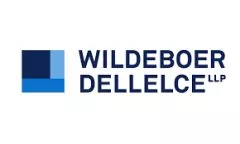- within Government and Public Sector topic(s)
- in United Kingdom
- within Criminal Law topic(s)
The Federal Government's Fighting Against Forced Labour and Child Labour in Supply Chains Act (the "Modern Slavery Act") imposes disclosure obligations on various Canadian and Canadian-linked entities.
This legal update constitutes the fourth installment in our series on the Modern Slavery Act. For background information, please see our prior updates from October 2022, September 2023 and January 2024.
Background
The Modern Slavery Act, which came into force on January 1, 2024, requires entities that: (i) are listed on a Canadian stock exchange; (ii) have a place of business, do business or hold assets in Canada; and (iii) meet certain thresholds, as set out in our prior update from September 2023 (the "Obligated Entities"), to report by May 31st of each year on their efforts to identify, prevent and mitigate risks of forced labour or child labour in their operations and supply chains. Failure to do so may result in substantial penalties, including fines of $250,000 per offence along with criminal prosecution.
On November 15, 2024, Public Safety Canada published updates to its guidance (the "Guidance") for entities to address key questions posed during the first reporting cycle. The updates aim to provide greater clarity to entities in meeting their obligations under the Modern Slavery Act ahead of the next reporting deadline of May 31, 2025.
This legal update highlights three key items and insights provided in the Guidance, which may assist entities in determining whether they are subject to the annual reporting requirement and assist Obligated Entities in the preparation of their annual reports.
Establishing a Business Presence and Holding Tangible Assets in Canada
To determine whether an entity qualifies as an Obligated Entity, one of the factors to consider is whether it has a place of business in Canada. The Guidance clarifies that conducting business in Canada does not necessitate having a physical office or location within the country. Entities can assess whether they are doing business in Canada by referencing the factors used by the Canada Revenue Agency to determine if a person is carrying on business in Canada for GST/HST purposes.
Another factor to consider when determining if an entity qualifies as an Obligated Entity is whether it satisfies the threshold of having at least $20 million in assets on its consolidated financial statements in either of the last two financial years. The Guidance specifies that the term "assets" refers exclusively to tangible assets; intangible assets, such as intellectual property, securities or goodwill, should be excluded. For instance, entities owning shares in a Canadian subsidiary without other tangible assets in Canada will not meet this threshold and therefore may not be obligated to file an annual report in 2025. It is also worth noting that assets should be calculated on a gross rather than a net basis.
Business Activities That Trigger the Reporting Requirement
The Modern Slavery Act mandates reporting for Obligated Entities that:
(a) produce goods in Canada or elsewhere;
(b) import goods produced outside Canada; or
(c) control another entity that produces or imports goods.
The Guidance clarifies that the term "goods" refers to tangible physical property involved in trade or commerce, as commonly understood. This definition specifically excludes real property, electricity, software services and insurance plans. Additionally, the Guidance states that "producing goods" encompasses activities such as manufacturing, growing, extracting and processing.
Lastly, an entity is considered to be "importing goods" if it is the actual importer responsible for bringing the goods into Canada; typically, this is an entity that accounts for or pays duties on the imported goods. Customs brokers, express couriers, trade consultants and other third parties acting on behalf of the importer are generally not regarded as the importers, as they do not directly cause the goods to enter Canada. Furthermore, purchasing goods from a third party that is an official importer does not qualify as importing. Only entities directly involved in the production or importation of goods, or those that directly or indirectly control entities engaged in these activities, are required to submit an annual report.
The terms "producing" and "importing" do not apply to services that merely support the production or importation process, such as marketing, administration, financial services and software services.
While there is no specific minimum threshold for the value of goods an entity must produce or import to be subject to the reporting requirement, the terms used in the Modern Slavery Act exclude "very minor dealings." Such dealings should be assessed based on the de minimis principle and evaluated in the context of an entity's business.
Manner of Reporting
Obligated Entities subject to the Modern Slavery Act may submit the same annual reports prepared for other jurisdictions, such as the United Kingdom or Australia, provided they meet the specific requirements and reporting period of the Modern Slavery Act. Additionally, an Obligated Entity may submit a joint annual report covering both a parent company and its subsidiaries, as long as the information applies consistently across all entities. However, a joint annual report should not be submitted if significant discrepancies exist between the parent company's and subsidiary's risk profiles or policies, in which case separate reports should be submitted.
Obligated Entities may revise their annual reports within one year to incorporate new information or update previously submitted questionnaire responses. To submit a revised annual report, Obligated Entities must complete the online questionnaire a second time and upload their revised annual report in PDF format. This second questionnaire must indicate the date of revision and include a description of the changes that were made to the original annual report or questionnaire.
Both the online questionnaire and the PDF annual report must be completed and submitted to comply with the reporting requirement, but only the PDF annual report requires governing body approval. The online questionnaire must be completed by a designated individual from the Obligated Entity, who must provide their contact details without including personal information.
The online questionnaire contains some guidance on actions an Obligated Entity can take to mitigate forced labour and child labour risks, which may serve as an additional resource to Obligated Entities when preparing their annual reports. While the format of the online questionnaire may in some cases limit the ability to provide a robust response, more detailed information can be included in the annual report.
Conclusion
As entities prepare for the next round of reporting under the Modern Slavery Act, it is crucial to understand the Guidance and its implications on compliance. The Guidance provides clarity on which entities are required to report, helping entities assess their obligations early and avoid surprises ahead of the May 31, 2025 deadline. While some entities may find that they no longer need to report, others, which were previously unaware of their obligations, may now find themselves subject to the reporting requirement.
As the legal landscape continues to evolve, entities should monitor any further updates to the Guidance, participate in relevant consultations and refine their reporting processes to ensure they comply with the reporting requirement. Proactive engagement with the Modern Slavery Act will not only help Obligated Entities to comply but also strengthen their efforts to combat forced labour and child labour in their supply chains.
The authors gratefully acknowledge the assistance of articling student Mayur Pujara in the preparation of this update.
The content of this article is intended to provide a general guide to the subject matter. Specialist advice should be sought about your specific circumstances.



